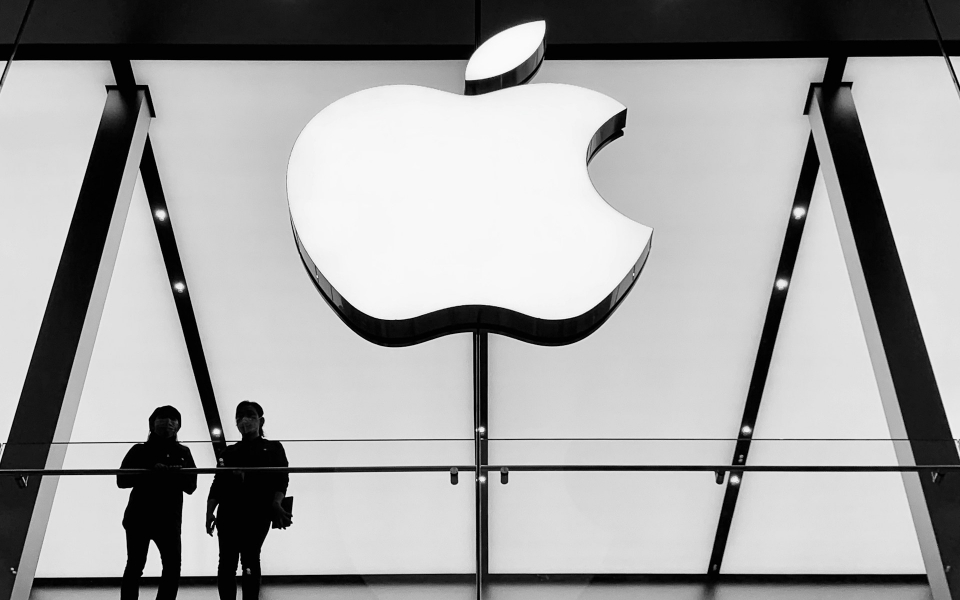Stocks rose higher Monday as market participants cheered U.S. tariff exemptions on tech hardware announced by the White House late Friday. The Dow Jones Industrial Average climbed over 300 points, while the S&P 500 Index and Nasdaq Composite added 0.8% and 0.6%, respectively.
Here's how the market settled on Monday:
S&P 500 Index
Dow Jones Industrial Average
Nasdaq Composite Index
President Donald Trump made exceptions for tech products including smartphones and computers, as well as other electronic devices and their components like semiconductors, solar cells and memory cards, from his so-called "reciprocal" tariffs, according to new guidance from U.S. Customs and Border Protection issued Friday evening.
These exemptions from the Trump administration's 125% tariff on Chinese imports and the 10% baseline tariff on imports from all other countries benefits tech giants like Apple
White House deputy press secretary Kush Desai said in a statement on Saturday that, "at the direction of the President, these companies are hustling to onshore their manufacturing in the United States as soon as possible."
However, U.S. Commerce Secretary Howard Lutnick said Sunday in an interview with ABC's "This Week" that smartphones, computers and other electronics could see their own separate tariffs, and semiconductors may face their own duties as well, in the coming months. Trump further confused the federal government's message late Sunday, stating that there was "no exception," for these products in a post on his social media platform Truth Social.
"We are taking a look at Semiconductors and the WHOLE ELECTRONICS SUPPLY CHAIN in the upcoming National Security Tariff Investigations," Trump wrote.
Trump continued to change course on Monday, signaling that he may "help some of the car companies," impacted by his 25% tariff on foreign autos and auto parts, sending shares of Ford
"I'm looking for something to help some of the car companies, where they're switching to parts that were made in Canada, Mexico and other places, and they need a little bit of time because they're going to make them here," Trump told reporters during the meeting with Salvadoran President Nayib Bukele in the Oval Office, but failed to provide details on what that help may be.
Wall Street saw one of its most volatile trading weeks on record last week, with the S&P 500 Index posting its third-largest single session gain since World War II on Wednesday after Trump announced a 90-day pause for most of his new tariff rates announced on April 2. All three major averages, however, are still lower post the announcement and roll out of the White House's trade policies.
"The White House made the right move in our view as tech leaders and the overall tech industry knew that if these tariffs went into effect it would essentially be a shut off valve for getting products to the U.S. consumers," Wedbush analyst and tech industry bull Dan Ives wrote in a Sunday note.
"There is mass uncertainty, chaos, and confusion about the next steps ahead with all focus on China tariff negotiations being front and center and any progress on this game of high stakes poker between Beijing and D.C. being crucial to the markets and the economy this week," Ives added.
Uncertainty is growing across the U.S. economy, with both consumers and business executives forecasting a recession by the end of the year.
According to a poll of more than 300 CEOs in April, more than 60% said they are preparing for a recession or other economic downturn in the next six months, industry group Chief Executive reported Monday. Those expectations rose from 48% from the firm's March survey.
Moreover, about three-fourths of executives polled said Trump's tariffs would impact their business this year, and about two-thirds said they do not support the trade policies.
Consumer fears over inflation, unemployment and the health of the stock market all rose in March, according to a Federal Reserve Bank of New York survey released Monday. The central bank's monthly Survey of Consumer Expectations showed Americans expect one-year inflation to increase to 3.6%, marking the highest reading since October.
Beneath the headline, consumer forecasts for a highly unemployment rate one year from now jumped 4.6 percentage points to 44% -- its highest level since the early months of the coronavirus pandemic -- while the expectation for stock market growth over the next year declined 3.2 percentage points to 33.8%.
On the Earnings Front:
Goldman Sachs
CEO David Solomon noted that the bank is preparing for changing market conditions in the wake of Trump's tariff policies, calling the second quarter a "markedly different operating environment than earlier this year."
"Our clients, including corporate CEOs and institutional investors, are concerned by a significant near-term and longer term uncertainty that has constrained their ability to make important decisions," Solomon told analysts during the company's earnings call on Monday. "This uncertainty around the path forward, and fears over the potentially escalating effects of a trade war have created material risks to the U.S. and global economy."
In the News:
Nvidia
"NVIDIA is building supercomputer manufacturing plants in Texas, with Foxconn in Houston and with Wistron in Dallas," the company wrote in a blog post on Monday. "Mass production at both plants is expected to ramp up in the next 12-15 months."
Pfizer
Looking Ahead:
Wall Street is gearing up for another busy week of economic data and earnings releases due out through the trading week. Notable reports include U.S. Retail Sales and Housing Starts and Permits data for March and a Builder Confidence reading for April, as well as earnings numbers from industry leaders United Airlines















